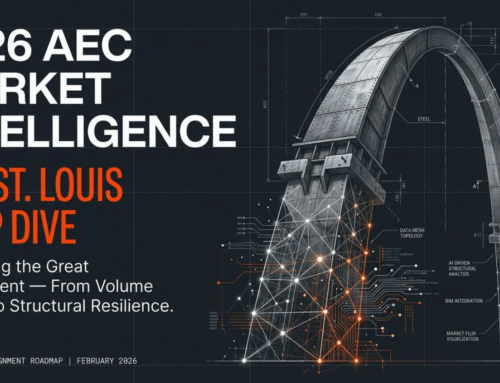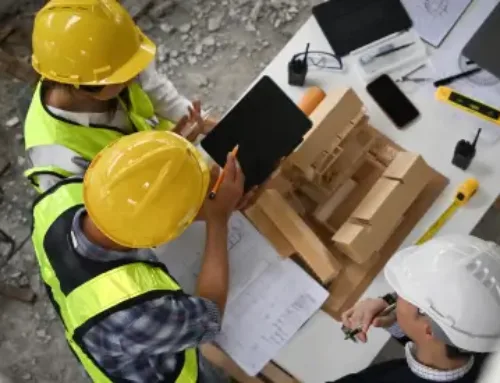The architecture, engineering, and construction (AEC) industry is in the middle of a massive transformation. Rapid technological innovation, evolving sustainability goals, and shifting workforce dynamics are redefining what it means to be a modern professional.
To stay competitive in this changing landscape, AEC professionals must do more than keep up—they must level up. The future will reward those who embrace continuous learning, adaptability, and a willingness to bridge the gap between traditional craftsmanship and emerging technology.
Here are the key skills shaping the AEC industry of 2026—and how you can start developing them now.
The Rise of Digital Construction Skills
The future of construction is digital. Tools like Building Information Modeling (BIM), digital twins, and AI-powered design systems are no longer futuristic concepts—they’re becoming standard practice.
Professionals who understand how to integrate these tools into their workflows will have a distinct advantage. From virtual coordination to predictive analytics, digital literacy is becoming as essential as blueprint reading once was.
Beyond software mastery, there’s a growing demand for data-driven decision-making. Understanding how to collect, interpret, and communicate insights from project data helps teams optimize performance, minimize risk, and drive efficiency. In short, tech fluency isn’t optional—it’s foundational.
Sustainability and Resilient Design Expertise
As climate concerns and environmental regulations intensify, sustainability is no longer a “nice-to-have”—it’s a core competency.
Professionals with expertise in green building standards like LEED, WELL, and Envision are leading the way in creating healthier, more resilient spaces. Skills in energy modeling, sustainable materials selection, and lifecycle cost analysis are increasingly in demand across disciplines.
Owners and clients are also prioritizing resilient design, ensuring that buildings can adapt to extreme weather, shifting energy needs, and evolving urban conditions. Understanding these principles positions AEC professionals as strategic partners, not just service providers.
Leadership and Collaboration in a Hybrid Workforce
The way we work has changed—and so has what effective leadership looks like. In a world where design teams, contractors, and clients may all be collaborating remotely, communication, empathy, and trust-building are vital skills.
Today’s most effective AEC leaders foster psychological safety, creating environments were ideas and feedback flow freely. They also embrace technology that enhances collaboration, from cloud-based project platforms to virtual coordination tools.
Soft skills—once underestimated in technical professions—are now mission-critical. The ability to lead with empathy, resolve conflict, and unite diverse teams is just as valuable as technical expertise.
Continuous Learning and Adaptability
In an industry evolving as quickly as AEC, adaptability is arguably the most important skill of all. New materials, methods, and technologies emerge every year, and regulations continue to shift alongside them.
Professionals who embrace lifelong learning—through certifications, continuing education, workshops, or mentorship—set themselves apart. Cross-training across disciplines can also spark innovation and help teams work more holistically.
The message is clear: in a rapidly changing field, staying still means falling behind
By investing in digital literacy, sustainability expertise, leadership skills, and adaptability, you’re shaping your future.
Whether it’s enrolling in a professional development course, joining an industry association, or earning a new certification, take that next step toward growth. The buildings of tomorrow will be designed and constructed by professionals who are as innovative as the tools they use—and as resilient as the structures they create.






